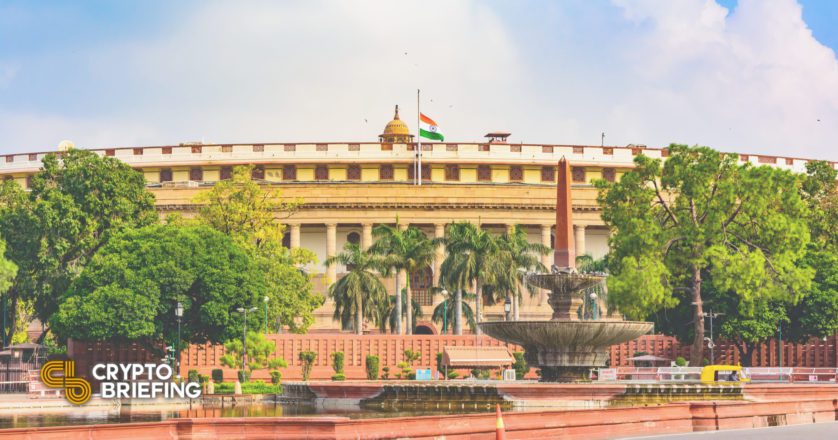India Imposes 30% Crypto Tax, But Politicians Are Fighting Back
The new legislation imposes a flat 30% tax on profits from crypto trading without the ability to use gains to offset losses.

Key Takeaways
- A new finance bill has passed a vote in the upper house of the Indian Parliament.
- The bill enforces a 30% tax on crypto trading profits and a 1% tax of all crypto transactions.
- Several members of the Indian Parliament have spoken out against the bill, explaining how the 1% tax on on transactions would hurt the crypto industry in the country.
Share this article
The Indian government has passed new tax laws on cryptocurrencies, dictating a flat 30% tax on trading profits and a 1% tax deducted at the source. Several members of parliament have pushed back against the new legislation warning that the measures could “kill” the crypto industry in the country.
Indian Government Taxes Crypto
Crypto trading in India is about to get a lot more expensive.
The upper house of the Indian Parliament passed the 2022 Finance Bill Friday, imposing a flat 30% rate on all profits made through trading cryptocurrencies. Additionally, Indians will also be forced to pay a 1% tax on every crypto transaction they make deducted at the source, effective Apr. 1.
While several crypto advocates and pro-crypto politicians have argued for relaxing the proposed regulations in recent weeks, their pleas appear to have fallen on deaf ears. Amendments to the bill made at the start of February changed its wording to prevent profits made through crypto trading from being used to offset losses, as is customary in the tax laws of other countries such as the U.S.
In response, several members of the Indian Parliament have criticized the bill. Pinaki Misra, a member of the parliament’s lower house, previously argued that the new tax rules would be analogous to banning cryptocurrency while also comparing a ban on digital assets to banning the Internet. He also pointed out that the 30% tax rate is the same as India’s tax on gambling winnings, positing that the government regards crypto trading as a “sinful activity.”
After the bill had passed, Ritesh Pandey, leader of the Bahujan Samaj Party, explained the detrimental effects of the new tax laws in parliament, specifically the 1% tax deducted at the source. “What the Finance Minister has done by introducing this 1% TDS is hamper the way that business is done,” he said.
Other MPs have also called out the lack of clarity in the bill and warned that the harsh tax structure would “kill” the Indian crypto industry. In response, the bill’s architect, Finance Minister Nirmala Sitharaman, rejected accusations of a lack of clarity while confirming that discussions over digital asset regulation are still ongoing. She stated:
“A lot of exchanges are happening—people are putting money, people are taking money, people are creating assets, assets are being sold and bought, so obviously the government made its position clear saying we shall tax the money being generated out of it.”
While Indian politicians mull crypto taxes, the country’s central bank had previously called for an outright ban on digital assets. Shri T. Rabi Sankar, Deputy Governor of the Reserve Bank of India, recently proposed banning cryptocurrencies, highlighting threats to India’s banking system and the country’s financial sovereignty. The crypto tax provisions in the 2022 Finance Bill indicate that the Indian government has ruled out the central banks’ call for a ban in favor of using cryptocurrency trading to generate tax revenue.
Since the bill was first proposed in February, an online campaign using the hashtag #reducecryptotax began trending on Twitter but has done little to sway the opinions of policymakers. With few options left, pro-crypto members of parliament and crypto industry members may attempt a Supreme Count challenge in a final bid to overturn the stringent tax laws.
Disclosure: At the time of writing this piece, the author owned ETH and several other cryptocurrencies.
Share this article
